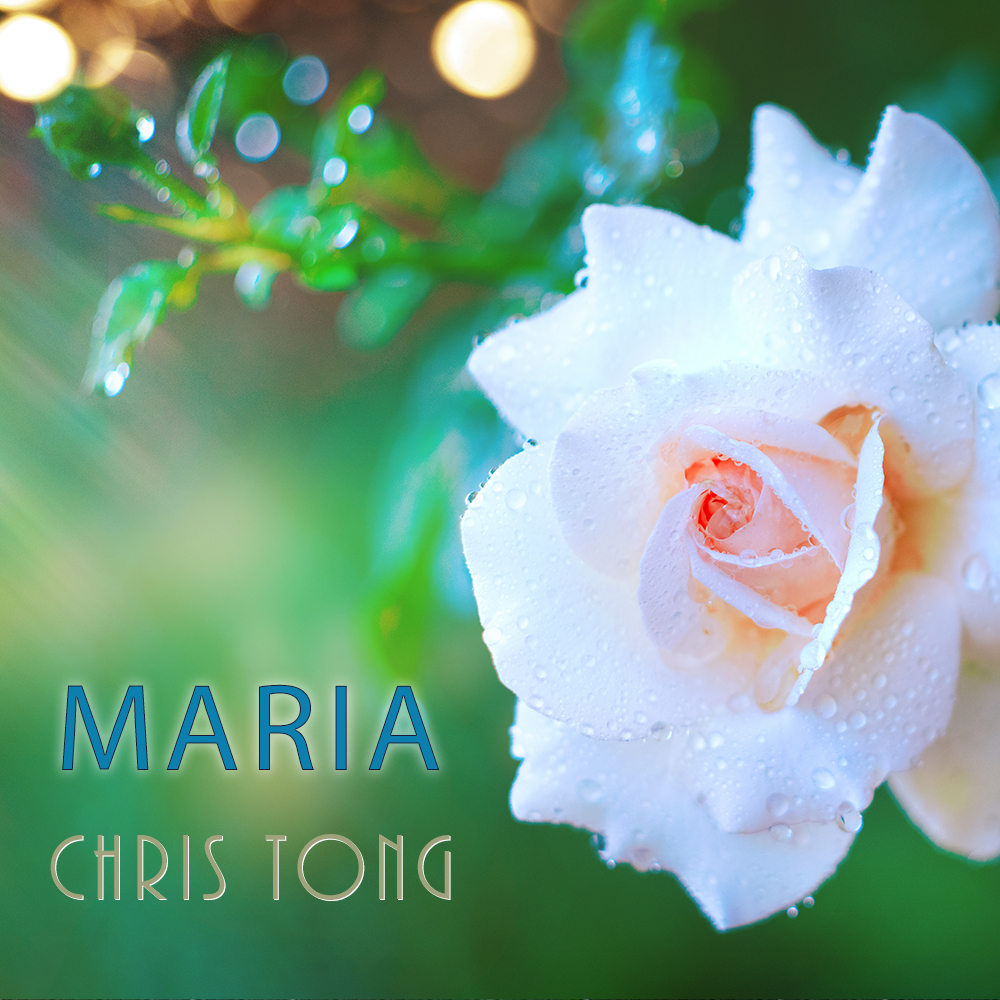| Home | Playlists / Albums | Other Music | Music Links | About Chris | Contact Chris |

|
Maria LINKS ABOUT THIS SONG music: Leonard Bernstein lyrics: Stephen Sondheim release date of this version: April 4, 2023 length: 2 minutes and 52 seconds vocals: Chris Tong karaoke arrangement: misscreations My cover of Maria, the magnificent, operatic song from West Side Story — music by Leonard Bernstein and words by Stephen Sondheim. I'm singing to a karaoke orchestral version of the song. This song is dedicated to my intimate partner, whose name "Mary" is the English translation of her Hungarian birth name, Maria. LYRICS MARIA The most beautiful sound I've ever heard: |
|
ADDITIONAL NOTES ABOUT THE SONG The classical section of The Great American Songbook. The Great American Songbook contains many different styles of music. A lot are "jazzy", like On the Street Where You Live, Misty, The Way You Look Tonight, etc. These songs have gained so much prominence that an album of "Great American Songbook" songs tends to be drawn exclusively from the jazz section of the Songbook. But there are many other styles in that Songbook. Songs like Moon River are more in the "folk song" tradition (as are the songs of Stephen Foster: Swanee River, Beautiful Dreamer, and Oh! Susanna). Others are classical and operatic, like The Sound Of Music. And Maria. It's not too surprising that Maria is classical and operatic in style, given that its composer, Leonard Bernstein, also composed symphonies and conducted symphony orchestras. A unique collaboration: Bernstein and Sondheim. It might come as a surprise to many that the lyricist for Maria was Stephen Sondheim. It was his first foray into musical theater. He would later transition to writing both music and songs. And his lyrics would get darker, reflecting more of the complexities in human egoity. But in this song, they still resemble the optimistic lyrics of his mentor, Oscar Hammerstein; you can see the similarities between a line like "The most beautiful sound I've ever heard" (Sondheim, 1957) and "The hills are alive with the sound of music" (Hammerstein, 1959). But in West Side Story, we have a unique, one-time collaboration between a young (27 year old) Stephen Sondheim as lyricist, and a more mature (39 year old) Leonard Bernstein as musical composer. MUSIC A passionate song, to be passionately sung. Maria is not a lukewarm song! It's an exuberant, passionate expression, made at the moment you realize you're in love. You alternately want to "say it loud" at the top of your lungs so the whole world can hear; and "say it soft" so everyone knows it's your heart speaking. And so that is how I sing this song: with no middle ground. The accompanying orchestral arrangement does the same. Indeed, I took my singing cues from Bernstein's orchestral score. The karaoke arrangment is Berstein's original orchestral score (rather than, say, a more pop-ified version like the one Johnny Mathis did). And as you can hear, the orchestra makes it clear that the "say it loud" section is supposed to be really loud! The vocal score concurs: ff means sing "very loud" and pp means sing "very soft":
Repeating the name, "Maria". So in my feeling, it's not possible to go overboard in how one sings this song. With one exception: it is possible to bore the listener to death! — by taking the words, "I'll never stop saying Maria" too literally. The original score has the name, "Maria", sung thirty times, in the short span of three minutes! And often singers end up singing the name repeatedly in a way that sounds more forced and mechanical than passionate. My feeling is that repeating Maria over and over again can get very annoying unless the listeners themselves are madly in love with Maria. Listeners enjoy passionate singing, but not repetitive singing. So I intentionally give my listeners a little break from the name "Maria" in the (now purely) instrumental section, where other singers usually keep repeating the name, "Maria". More on repeating the name, "Maria". A litle more on this subject. As the introduction to the song, the first line is sung: The voices also sound murky, not crisp, as they blend into each other, which I don't like. Another common approach is to have the singer himself sing all the "Marias", as in this performance by John Barrowman: That feels a little more coherent. But singing them all in the same voice, and at the same volume, seems to miss something important. So I took my cue from the orchestral accompaniment, which Bernstein is very clearly directing to be louder and louder as the intro proceeds. So I make my "Maria"s louder and louder too. I also have them "reverbed" so that they sound like a secondary voice (while still my voice) that is gradually turning into the lead voice, coming to the front with the final, triumphant "Maria!". So the full performance of the intro, then, is as if the name is bubbling up inside him. It is his voice — not the voices of others — but made to sound "internal" rather than "external". It gets louder and louder, until it finally explodes out his mouth, when he can no longer merely think it internally, but his passion requires him to sing it aloud: |
top |
| Home | Playlists / Albums | Other Music | Music Links | About Chris | Contact Chris |